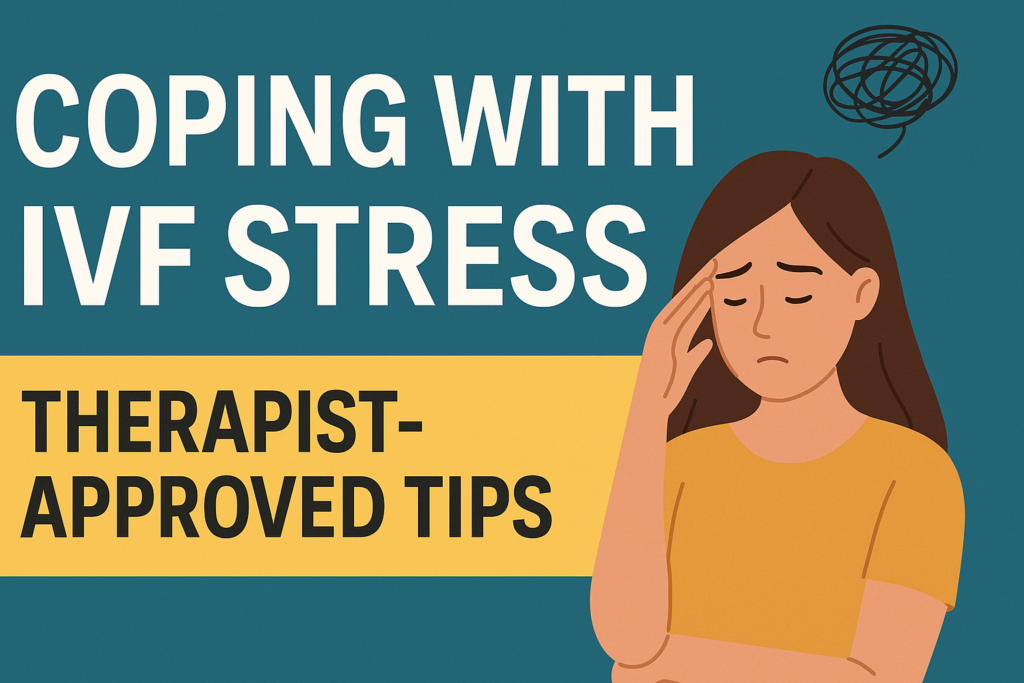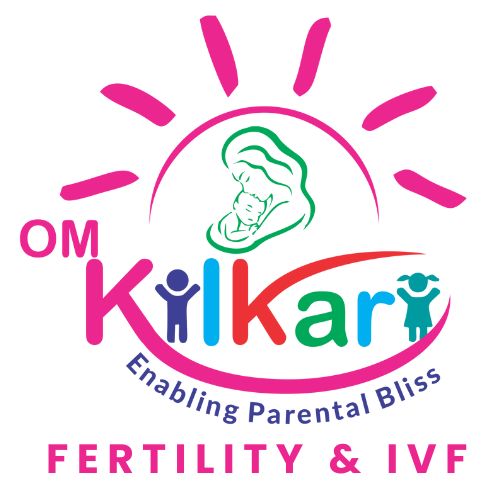Coping with IVF Stress: Therapist-Approved Tips for a Calmer Journey
By Kilkari IVF – Where Hope Meets Care
In-vitro fertilization (IVF) is a powerful path toward parenthood, but it’s no secret that the journey can be emotionally overwhelming. Between hormone treatments, waiting periods, medical appointments, and the uncertainty of outcomes, it’s natural to feel anxious, stressed, or emotionally drained.
At Kilkari IVF, we understand that fertility treatment isn’t just a medical journey—it’s an emotional one too. That’s why our care extends beyond the clinical procedures. We believe in nurturing your mental and emotional well-being just as much as your physical health.

In this article, we’ll explore therapist-approved tips for coping with IVF stress, offering insights and strategies to help you manage your emotions, build resilience, and feel more in control every step of the way.
🧠 Why IVF Stress is Real—and Valid
Before we jump into solutions, it’s important to acknowledge the emotional intensity of IVF. Stress during fertility treatments often stems from:
- Uncertainty about success rates
- Hormonal changes impacting mood
- Financial concerns
- Waiting periods between stages
- Social pressure and isolation
- Fear of failure or loss
Therapists often refer to this as “invisible grief”—a feeling of loss that’s hard to explain to others, especially when no one sees the full scope of what you’re going through.
💬 “You’re not being overly sensitive—you’re being human. IVF is a rollercoaster, and it’s okay to feel everything.”
— Clinical Psychologist, Kilkari IVF Wellness Team
🧘♀️ 1. Practice Mindfulness and Relaxation Techniques
One of the most effective ways to manage IVF stress is to bring awareness back to the present moment. Mindfulness helps you anchor your thoughts, reduce anxiety, and calm your nervous system.
Try This:
- Deep breathing exercises (inhale for 4, hold for 4, exhale for 4)
- Guided meditations (apps like Headspace or Insight Timer)
- Progressive muscle relaxation
- Journaling your emotions
Even 10 minutes a day can significantly reduce cortisol (stress hormone) levels and improve your mood.
👥 2. Talk It Out—Don’t Bottle It Up
Many IVF patients hesitate to talk about their emotions, fearing judgment or misunderstanding. But talking to a trusted therapist, counselor, or even a support group can provide relief and perspective.
Therapist Tip:
- Set up regular therapy sessions during your IVF cycle.
- Consider couples counseling to strengthen communication with your partner.
- Join online or in-person support groups where others truly “get it.”
At Kilkari IVF, we offer in-house counseling as part of our holistic fertility care—because mental well-being is just as important as physical health.
💞 3. Strengthen Your Relationship
IVF can put a strain on even the strongest relationships. Hormonal changes, emotional highs and lows, and sexual routine changes can create distance. Open communication and empathy are key.
What You Can Do:
- Schedule non-IVF-focused date nights
- Check in with each other emotionally every day
- Share responsibilities during treatment to avoid burnout
- Express love and appreciation regularly
Remember, you’re a team—and facing this journey together makes you stronger.
📅 4. Establish a Predictable Routine
During IVF treatment, so much feels out of control. Creating a structured daily routine can help bring a sense of order and stability.
Include:
- Fixed wake-up and sleep times
- Mealtimes with balanced nutrition
- Scheduled “me-time” (walks, music, reading)
- Time for journaling, prayer, or reflection
Having a daily rhythm not only lowers stress but helps regulate your sleep and energy levels.
🛑 5. Set Boundaries with Social Circles
Well-meaning friends or family might unknowingly say hurtful things or ask invasive questions. Protecting your peace means setting healthy emotional boundaries.
Practice Saying:
- “We’re focusing on our health right now and aren’t ready to talk about details.”
- “Thanks for your concern. We’ll share updates when we feel comfortable.”
- “I’d prefer not to discuss this at the moment.”
You have the right to choose who is part of your emotional space.
📱 6. Limit Social Media Use
Scrolling through pregnancy announcements or baby posts can trigger anxiety or sadness. It’s okay to mute, unfollow, or take a break from social media while focusing on your IVF journey.
Instead, use digital platforms for:
- Inspirational content
- IVF blogs and support groups
- Mindfulness or relaxation videos
Choose media that uplifts you—not drains you.
🍲 7. Nourish Your Body with Balanced Nutrition
A healthy body supports a healthy mind. Eating nutritious, fertility-friendly foods can improve your physical well-being and mental clarity.
Focus On:
- Leafy greens and whole grains
- Good fats (avocados, nuts, olive oil)
- Lean proteins (to support hormone balance)
- Plenty of hydration
- Limit caffeine and alcohol during treatment
At Kilkari IVF, our fertility nutrition experts can guide you on what to eat and avoid during your cycle.
🏃♀️ 8. Move Your Body—Gently
Exercise releases endorphins, improves sleep, and reduces anxiety. But during IVF, it’s best to avoid high-intensity workouts unless cleared by your doctor.
Try:
- Light walking or stretching
- Prenatal yoga or fertility yoga
- Swimming or water therapy
- Dance or music movement therapy
Always check with your IVF specialist before beginning or modifying your exercise routine.
🎯 9. Shift Focus to What You Can Control
Much of IVF feels unpredictable, but not everything is out of your hands. Redirect energy to the things you can control, such as:
- Your attitude and mindset
- Your daily self-care rituals
- Your support system
- Your medical choices and clinic
Empower yourself with knowledge, and don’t hesitate to ask your fertility team questions. Being informed is calming.
🕊️ 10. Embrace Acceptance and Let Go of Guilt
If you’re feeling guilty, ashamed, or “less than,” remind yourself: Infertility is a medical condition—not a personal failure.
It’s okay to:
- Cry
- Take a break
- Say no to baby showers
- Feel a mix of emotions at once
Self-compassion is not a weakness—it’s your greatest strength on this journey.
💬 A Word from Kilkari IVF
At Kilkari Women and Children’s Hospital and Fertility Centre, we believe in treating the whole person—not just the diagnosis. That’s why our IVF program includes:
- On-site psychological counseling
- Nutrition and wellness coaching
- Emotional support for couples
- A warm, judgment-free environment
You’re never alone at Kilkari. We’re by your side every step of the way—medically, emotionally, and personally.
🌼 Final Thoughts: You Are Stronger Than You Think
IVF may test your patience, emotions, and resilience—but you’re not going through this alone. With the right strategies and support, it’s possible to navigate this path with strength and grace.
Take care of your body. Be kind to your mind. And trust that whatever the outcome, you are doing everything you can.
🙌 Need Support? We’re Here to Help.
If you’re considering IVF or currently undergoing treatment and need emotional support, Kilkari IVF’s compassionate care team is just a call away.
🌐 Book a consultation at: www.omkilkariivf.com
